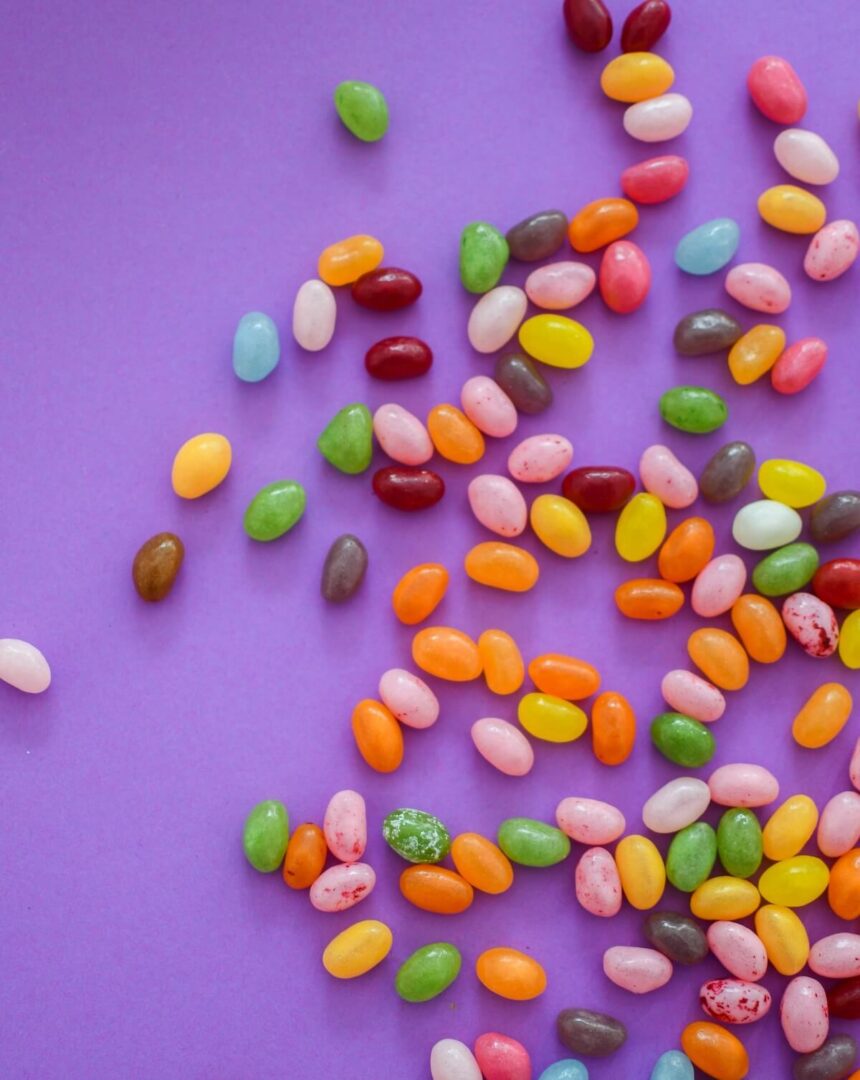When you think of sugar, your mind probably flies to that spoonful you added to your coffee this morning. Or, to that bowl of ice cream you enjoyed last night.
But sugar is practically everywhere, and most of us are consuming way too much of it. Too much sugar can lead to a slew of health problems. To find out if sugar is the culprit behind your less-than-ideal health conditions, keep reading.
What Is Sugar?
There are three main nutrient groups: carbohydrates, fats, and proteins. Sugar is a type of carbohydrate, and it’s been around for thousands of years. It’s what makes a summer peach sweet and succulent.
And it’s what gives certain vegetables, like sweet potatoes and carrots, their alluring charm.
Different Types of Sugars
Have you ever flipped your cereal box around to read the ingredients? It’s not likely that you’ll see “sugar” listed. Instead, you’ll probably see a word like “fructose” at the top of the list. There are five common types of sugars, and they all end in “ose”. Here they are:
- Fructose: It’s easy to remember where this sugar comes from because fructose comes from fruits, as well as vegetables and honey.
- Glucose: Glucose is similar to fructose in that it’s derived from fruits, vegetables, and honey, too.
- Sucrose: Sucrose is made up of both glucose and fructose, and it’s also naturally occurring in many fruits and veggies.
- Lactose: This is another easy sugar to remember because “lactose” comes from milk and dairy.
- Maltose: Maltose is the sugar found in malt.
Your body needs glucose (the most common type of sugar) for many bodily functions, including proper brain function and to support your organs and muscles. It’s a quick and easy source of energy, too.
So, if sugar is naturally occurring in fruits, vegetables, honey, dairy, and malted drinks, why is it so bad for you?
Natural Sugar vs Processed Sugars
Normally, when you hear people say that sugar is “bad,” “dangerous,” or “addictive,” they’re not saying that you should stop eating fruits and vegetables.
The kind of sugar they’re talking about is the processed, added sugar that’s become a staple in most Western diets. It’s an ingredient that’s added to almost everything – even in foods that aren’t traditionally sweet, like tomato sauce, salad dressings, bread, and so much more.
So, it’s important to be aware that sugar is needed in the body and that it’s a naturally occurring carbohydrate in many different food groups.
But the sugar we’re addressing here is the sugar that’s completely separate from a whole food source, such as table sugar and high-fructose corn syrup.
What Happens if You Eat Too Much Sugar?
Added and processed sugar offers zero health benefits. Yes, it tastes tantalizing and always makes us come back for seconds, but our body suffers from this. On the surface, people can experience seemingly benign symptoms similar to the common cold.
In fact, pediatric otolaryngologist Dr. Julie Wei has dubbed this the “Milk and Cookie Disease.” Too much dairy and sweet treats can lead to runny and/or stuffed noses, fatigue, constipation, and sore throats. It’s easy to think that you’re under the weather when, in fact, you’re just on a sugar overload.
Dangers of Too Much Sugar
Cold-like symptoms are only the tip of the iceberg when it comes to too much sugar in your diet. Here are some of the most common and most dangerous effects of sugar on the body:
Inflammation
We’re often told that saturated fats and cholesterol are the reason for the rise in heart disease. But that’s scientifically incorrect.
Researchers are finding that eating too much sugar increases the risk of not only developing but dying from cardiovascular disease.
Addiction
A study entitled, Sugar addiction: pushing the drug-sugar analogy to the limit, evidenced that sugar is comparable to addictive drugs in its ability to drive reward and craving in the brain. In fact, sugar can be even more enticing to the brain’s reward center than cocaine.
So, if you find yourself attracted to sugar and having a difficult time overcoming sugar cravings, you’re not weak. Sugar, in and of itself, has addictive properties.
No Nutritional Value
When it comes to the naturally occurring sugars in fruits, vegetables, and milk, it’s clear that these sugars are both safe and necessary for a healthy body as long as they’re consumed in moderation.
The problem arises when you consume added, processed sugar. This has zero nutritional value.
If you eat an orange, you get plenty of vitamins and fiber. If you consume processed orange juice, you get a sugary drink and not much more. Added sugars can only increase your risk of inflammation, diabetes, weight gain, cancer, and so much more.
Weight Gain and/or Obesity
Added sugar is high in calories, and the unused energy from such sugar is stored in the body as fat. This can explain the rise in obesity throughout the United States.
Studies indicate that if you reduce your sugar consumption, it can be particularly helpful in dealing with type 2 diabetes and obesity.
Added Sugar Can Lead to Depression
David Sack, MD, notes that high consumption of sugar doesn’t just affect our waistlines. In fact, “sugar and other sweeteners, including high fructose corn syrup, honey, molasses, and maple syrup, may contribute to a number of health problems”, which include depression, schizophrenia, as well as addiction, and anxiety.
Too Much Sugar Can Increase the Risk of Cancer
Cancer cells thrive on glucose. Since your body takes dietary carbohydrates and turns them into glucose, you can increase your risk of cancer by consuming too much sugar.
Diets high in added sugar can help certain cancers develop, including colon, small intestine, breast, and esophageal cancer.
While eating a balanced diet of fruits and vegetables is encouraged, it’s always best to cut back on added and processed sugar. It’s important to feed yourself, but not the cancer cells!
How Many Grams of Sugar Per Day Can You Eat?
According to the American Heart Association, try not to consume more than 100 calories of sugar each day. That’s about six teaspoons or 20 grams of sugar.
To give you an idea, eight ounces of orange juice usually contains five and a half teaspoons of sugar.
Chances are, if you follow the average Western diet, you consume much more sugar than that on a daily basis.
How to Reduce Your Sugar Intake
As you can see, added and processed sugars are very dangerous to your health. They have zero nutritional value, and they’re high in calories, which are then stored in the body as fat.
Here are some tips to help you overcome sugar problems with the right diet:
- Eat more fruits and vegetables
- When cooking or baking, add less sugar than the recipe says
- Get rid of the sugar, molasses, honey, or syrups in your pantry
- Avoid artificial sweeteners
- Make your own juice
- Can your own fruits
- Cut back on sweetened beverages
Sugar is almost everywhere, and it’s wreaking havoc in the bodies of countless individuals. Try to eat just six teaspoons per day and fill the rest of your diet with nutritious and delicious foods instead.








